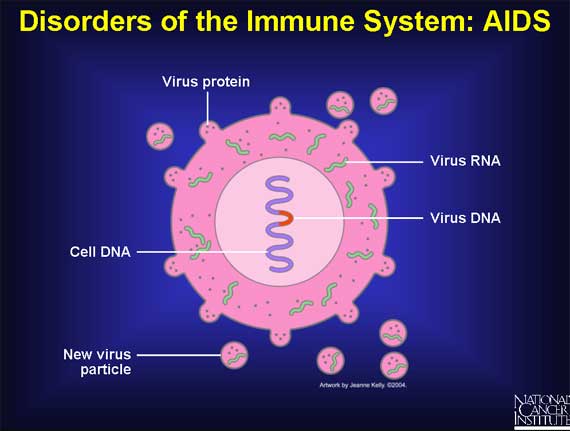|
When the immune system is lacking one or more of its components, the result is an immunodeficiency disorder.
These disorders can be inherited, acquired through infection, or produced as an inadvertent side effect of drugs such as those used to treat cancer or transplant patients.
AIDS is an immunodeficiency disorder caused by a virus that destroys helper T cells. The virus copies itself incessantly and invades helper T cells and macrophages, the very cells needed to organize an immune defense. The AIDS virus splices its DNA into the DNA of the cell it infects; the cell is thereafter directed to churn out new viruses.

< Previous | Index | Next Slide > |